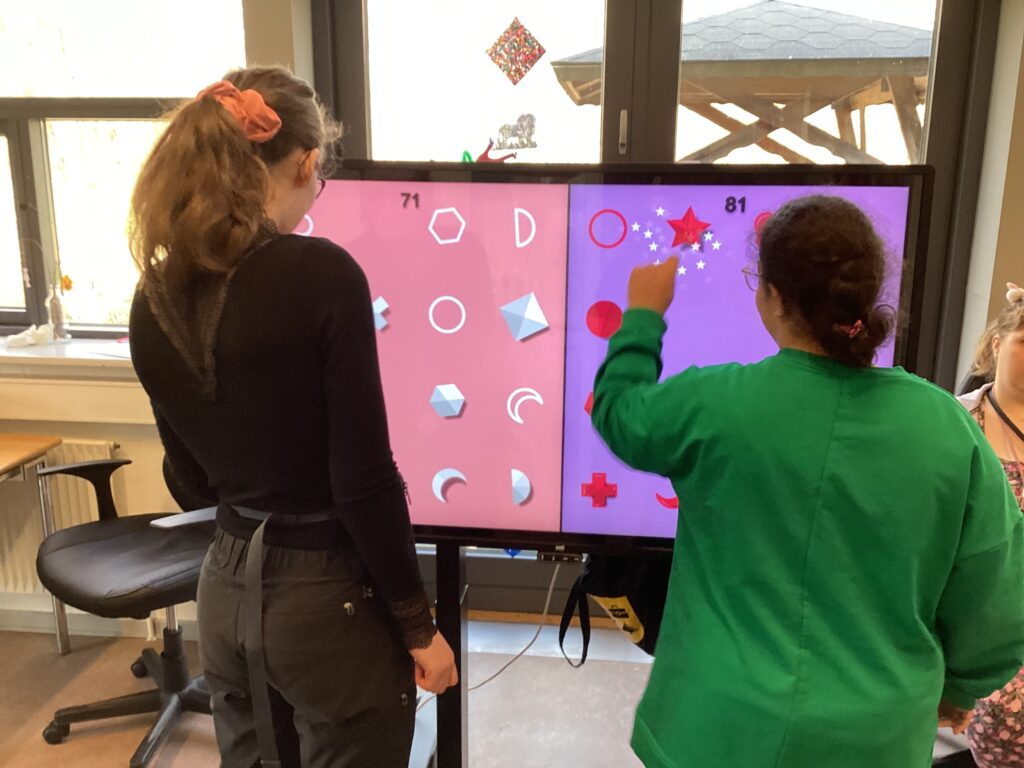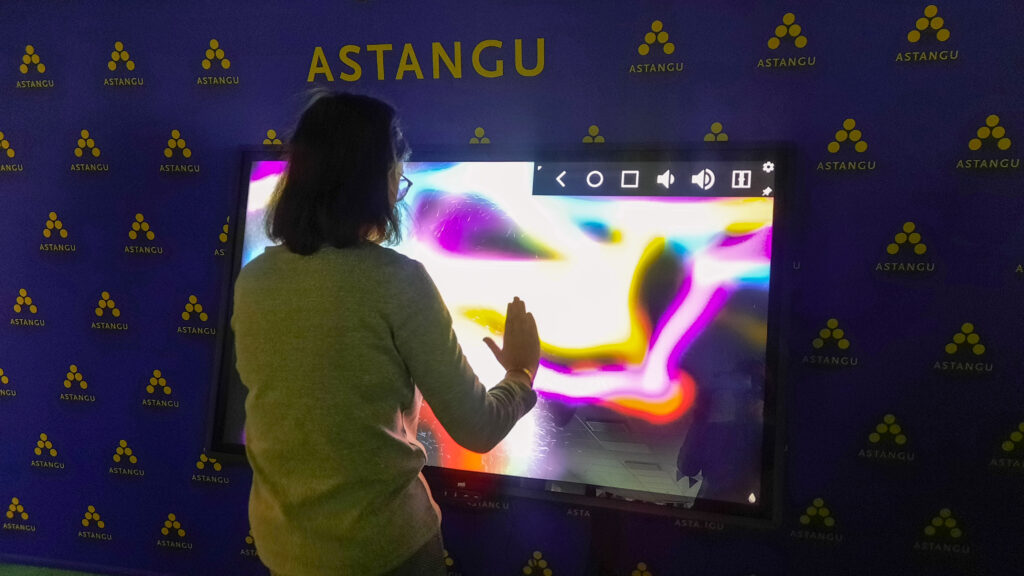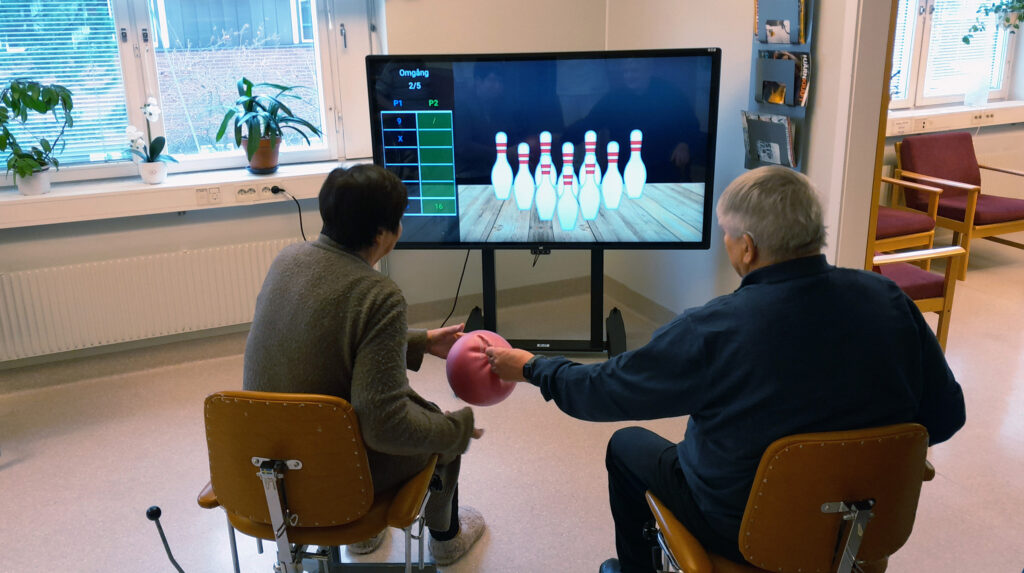Customer stories
Customised rehabilitation
with modern technology at
Akershus University Hospital
Customer stories
4.10.2024
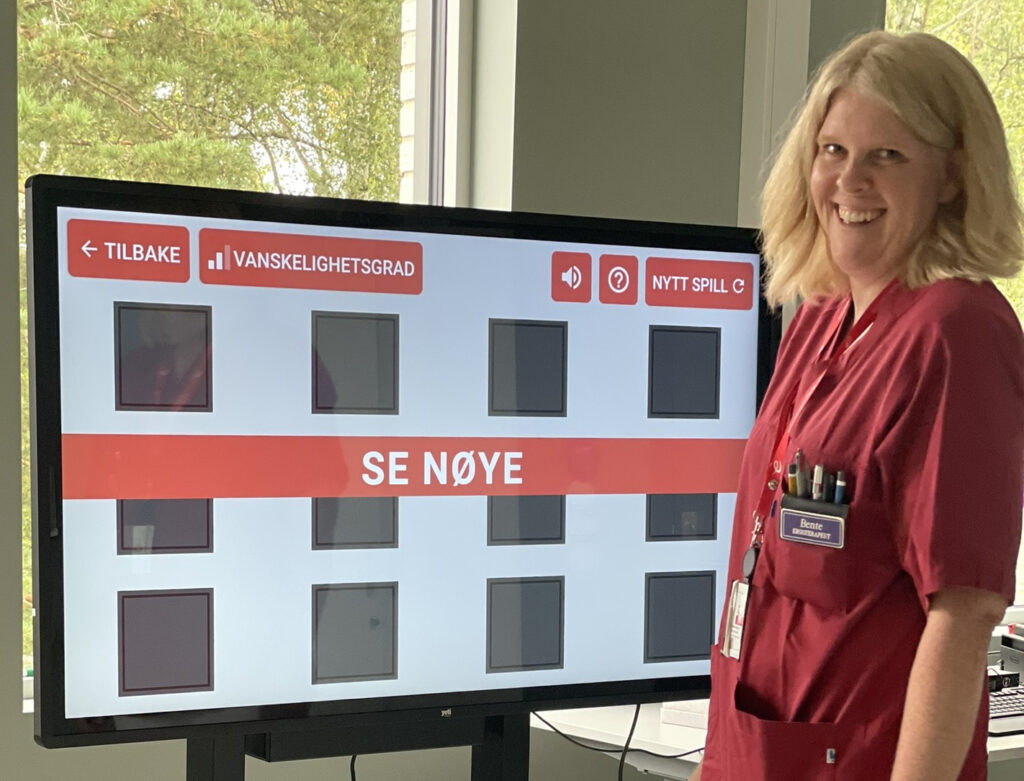
Akershus University Hospital (Ahus) is a local and regional hospital serving approximately 605,000 inhabitants. Its main responsibilities include patient care, research, education, and patient training. Ahus provides patient services in somatics, orthopaedics, mental health care, and substance abuse treatment. In the occupational therapy section of the Medical Division, they have recently introduced YetiCare’s Yetitablet, a modern touch screen, to support rehabilitation for patients with neurological challenges. YetiCare’s technology has become a useful addition to the rehabilitation process, helping to engage patients and offering new tools for staff.
A tailored approach with modern technology
Modern technology plays an important role in the neurological rehabilitation environment at Ahus. All patients receive a tailored rehabilitation plan, supported by an interdisciplinary team that includes occupational therapists, physiotherapists, speech therapists, social workers, specialist nurses, healthcare assistants, neuropsychologists, and doctors.
The occupational therapists have found that Yetitablet with YetiCare, supports their work well. Section leader Solveig Elisabeth Hermann-Bakken notes, “YetiCare makes it straightforward to train various physical functions. It requires both motor and cognitive skills.”
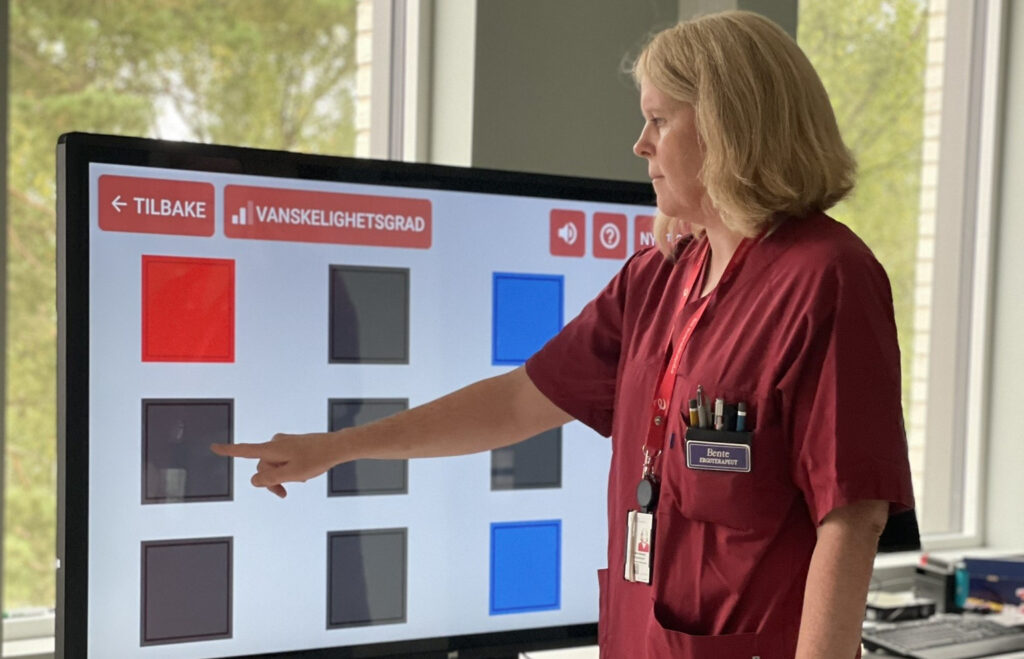
A valuable tool for rehabilitation
YetiCare has been a helpful supplement in the rehabilitation process. “Active participation in one’s rehabilitation is important for achieving results. The occupational therapists in the section carefully analyse how cognitive and motor challenges impact patients’ ability to perform daily tasks independently, safely, and efficiently. YetiCare can be used for both assessment and training,” explains Hermann-Bakken.
Experiences with YetiCare
For the patients: After a thorough functional assessment, relevant YetiCare apps on Yetitablet are used for cognitive training. “The apps focus on strengthening cognitive functions, which is crucial for patients with neurological conditions. Patient feedback has been positive, indicating improvements in their sense of mastery and increased motivation for digital training,” says Hermann-Bakken.
For the training program: Yetitablet with YetiCare has become a useful tool in the training program. “It allows for individualized adaptation and is particularly beneficial in group training. It also encourages social interaction and expands the range of activities available on weekends,” she adds.
For the staff: Staff members have found it rewarding to explore new training methods with the Yetitablet. “It is user-friendly and requires little training, which makes it easier for staff to use,” says Hermann-Bakken.
“YetiCare makes it straightforward to train various physical functions. It requires both motor and cognitive skills.”
Solveig Elisabeth Hermann-Bakken, Section leader, Akershus University Hospital
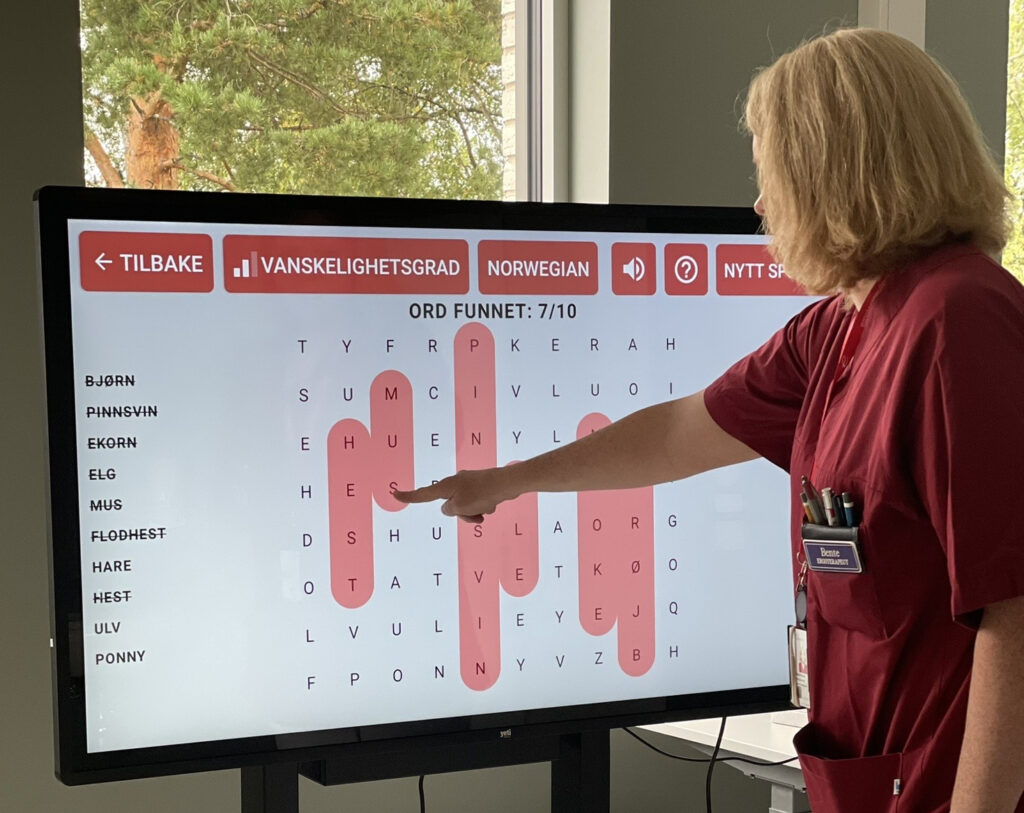
Collaboration and customized solutions
YetiCare has worked with the Occupational Therapy Section at Akershus University Hospital to adapt the YetiVision app to meet their specific needs. Through this collaboration, the app has been incorporated into the rehabilitation process and serves as a helpful tool to support the hospital’s work with patients.YetiVision has proven to be a valuable addition to the rehabilitation process.
Hermann-Bakken shares: “A patient with visual field loss after a stroke was worried about his changed functional level and reduced field of vision. Yetitablet was used in training, an app, YetiVision, with colourful bubbles and shapes to stimulate the outer edges of the patient’s field of vision. The patient played for a long time, becoming tired but never losing his smile. The patient was motivated and wanted to continue using Yetitablet in subsequent sessions.”
She continues: “Another patient believed he could not stand, but we started a game with Yetitablet, and with support and supervision, the patient managed to stand for several minutes. He was pleased to discover he could indeed stand.”
New opportunities in rehabilitation
YetiCare creates new opportunities in rehabilitation. “We use games with different colours and shapes that help patients with contrast issues. Even patients with visual field loss find this useful,” explains Hermann-Bakken.
Observed outcomes in rehabilitation
The approach to rehabilitation, focusing on engagement and enjoyment, has been well received. Hermann-Bakken observes that “it is easy for patients to get involved when using this tool in their training.”
Yetitablet with YetiCare has become an integrated part of the rehabilitation work at Akershus University Hospital. With its customized program and ability to adapt to the needs of patients, YetiCare has supported the hospital in enhancing rehabilitation services.
Are you a healthcare professional curious about how modern technology can support rehabilitation in your organization?
Contact our experts to explore YetiCare’s solutions.

